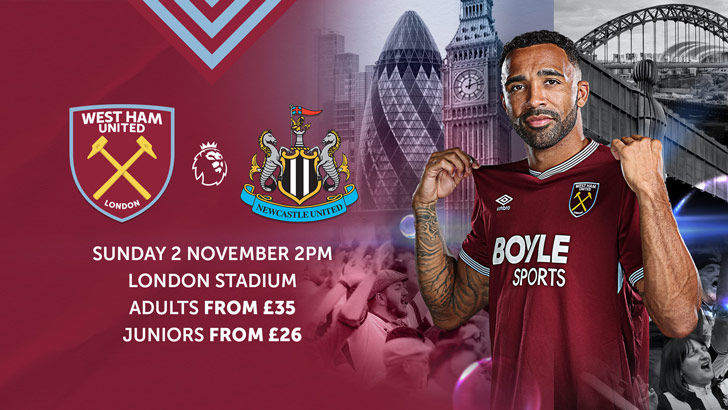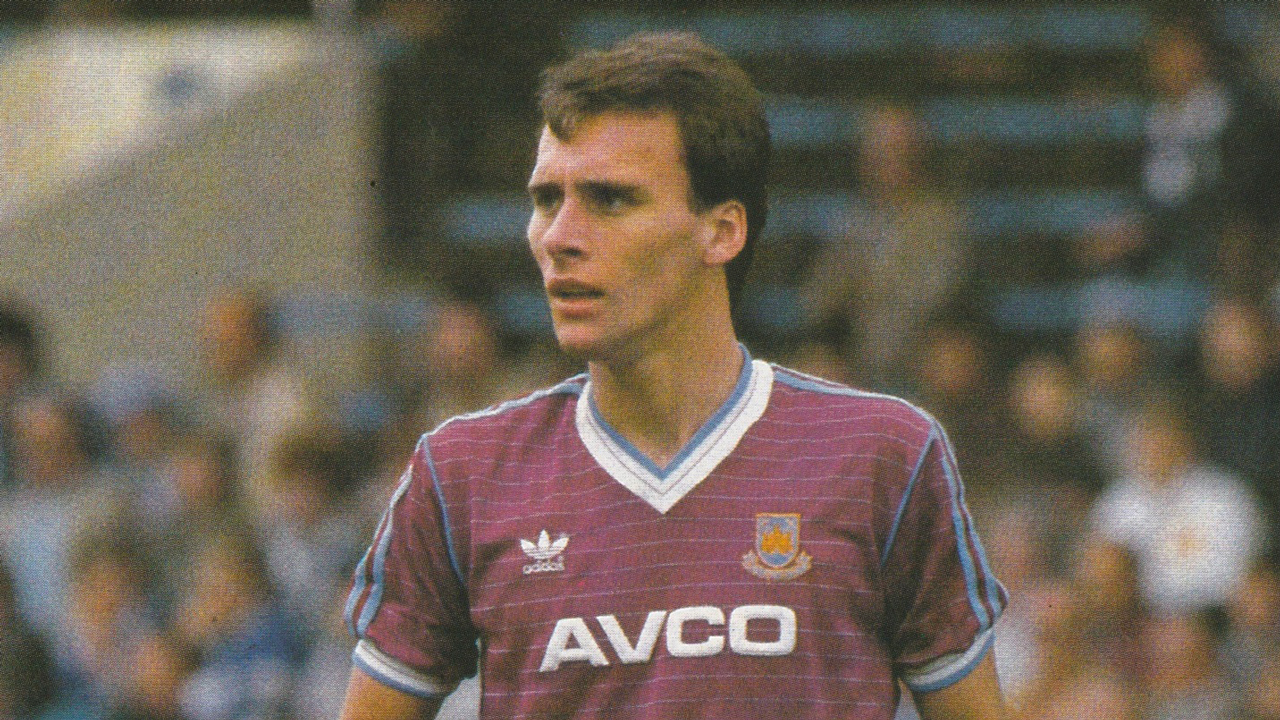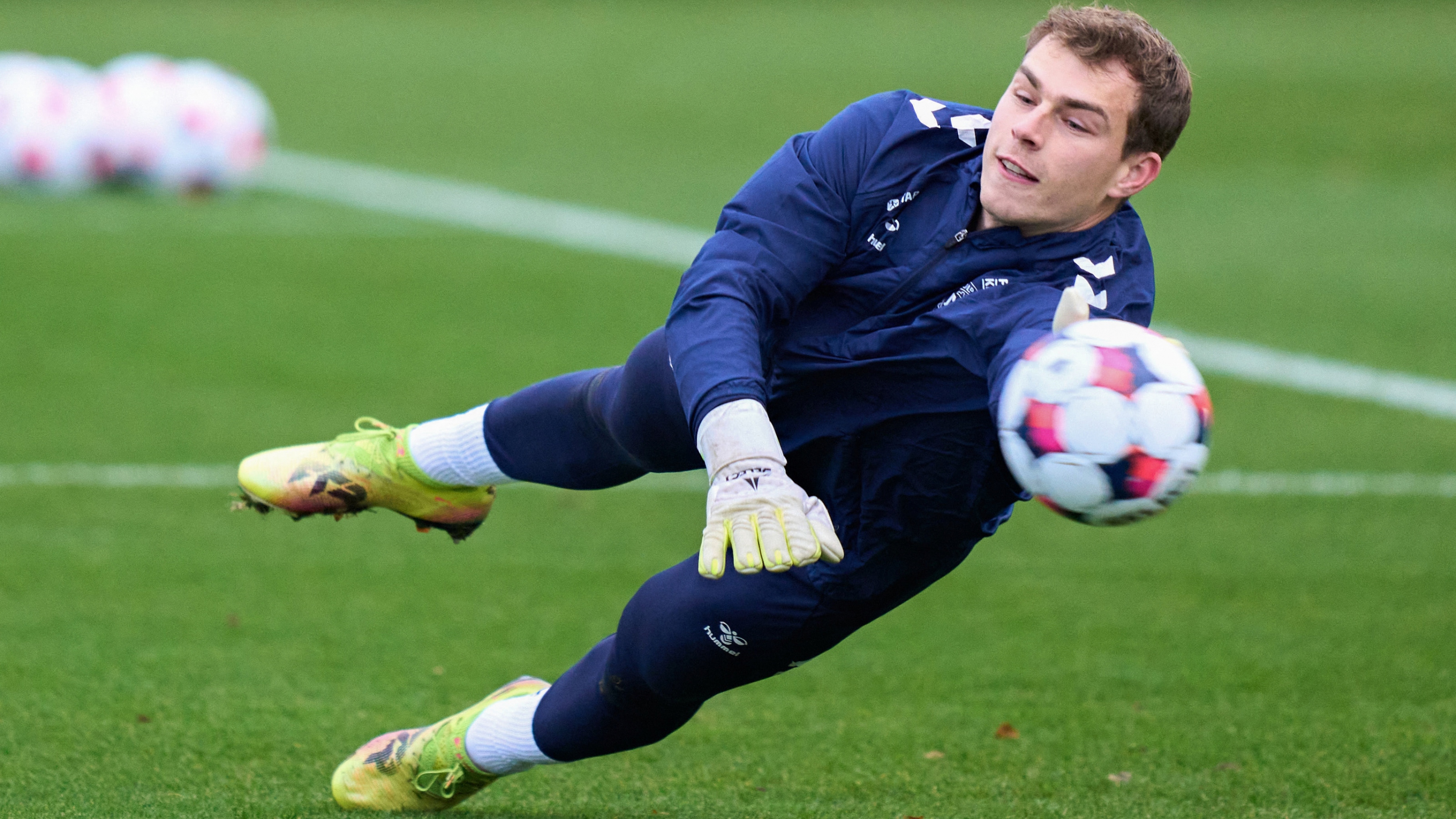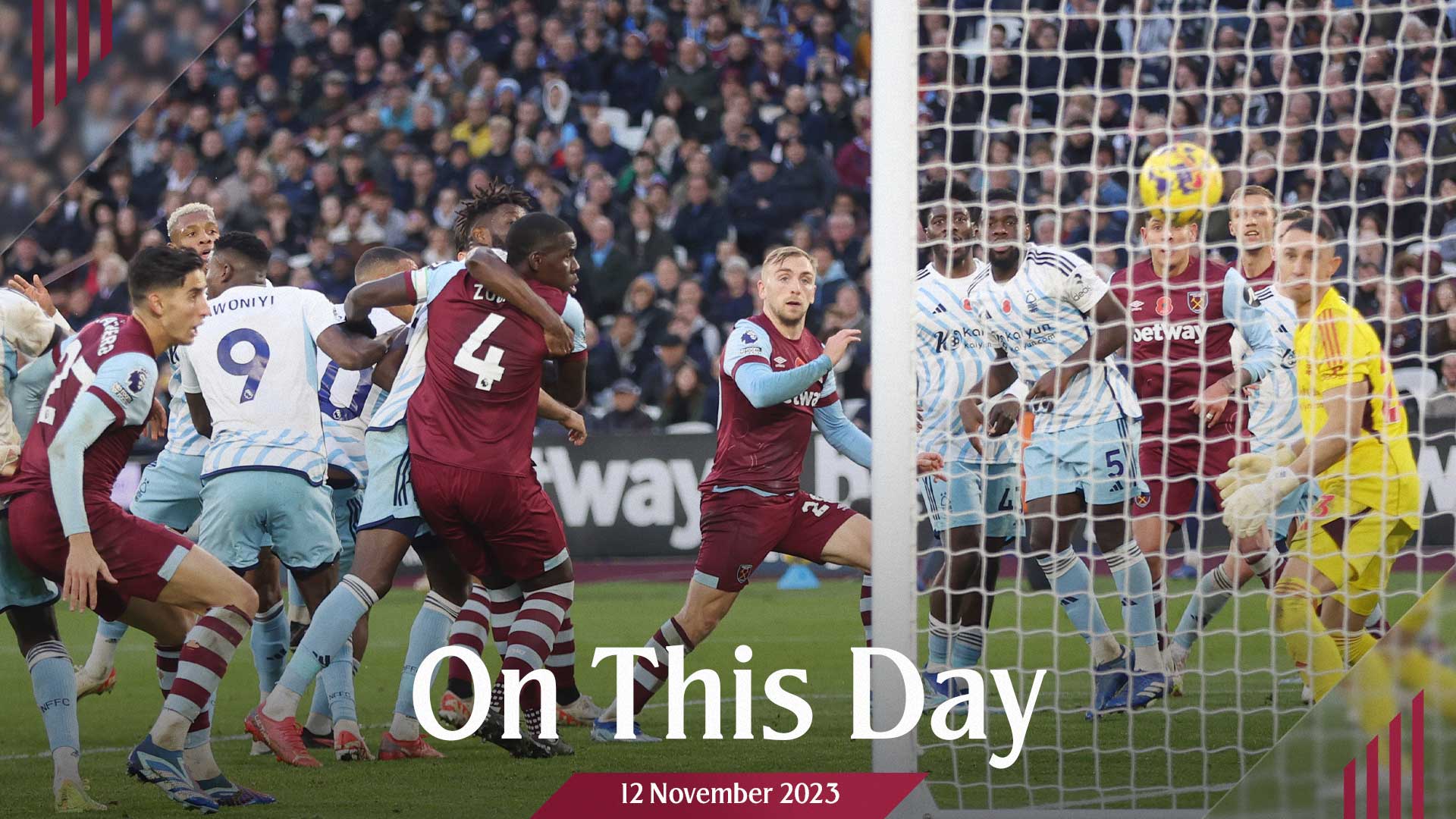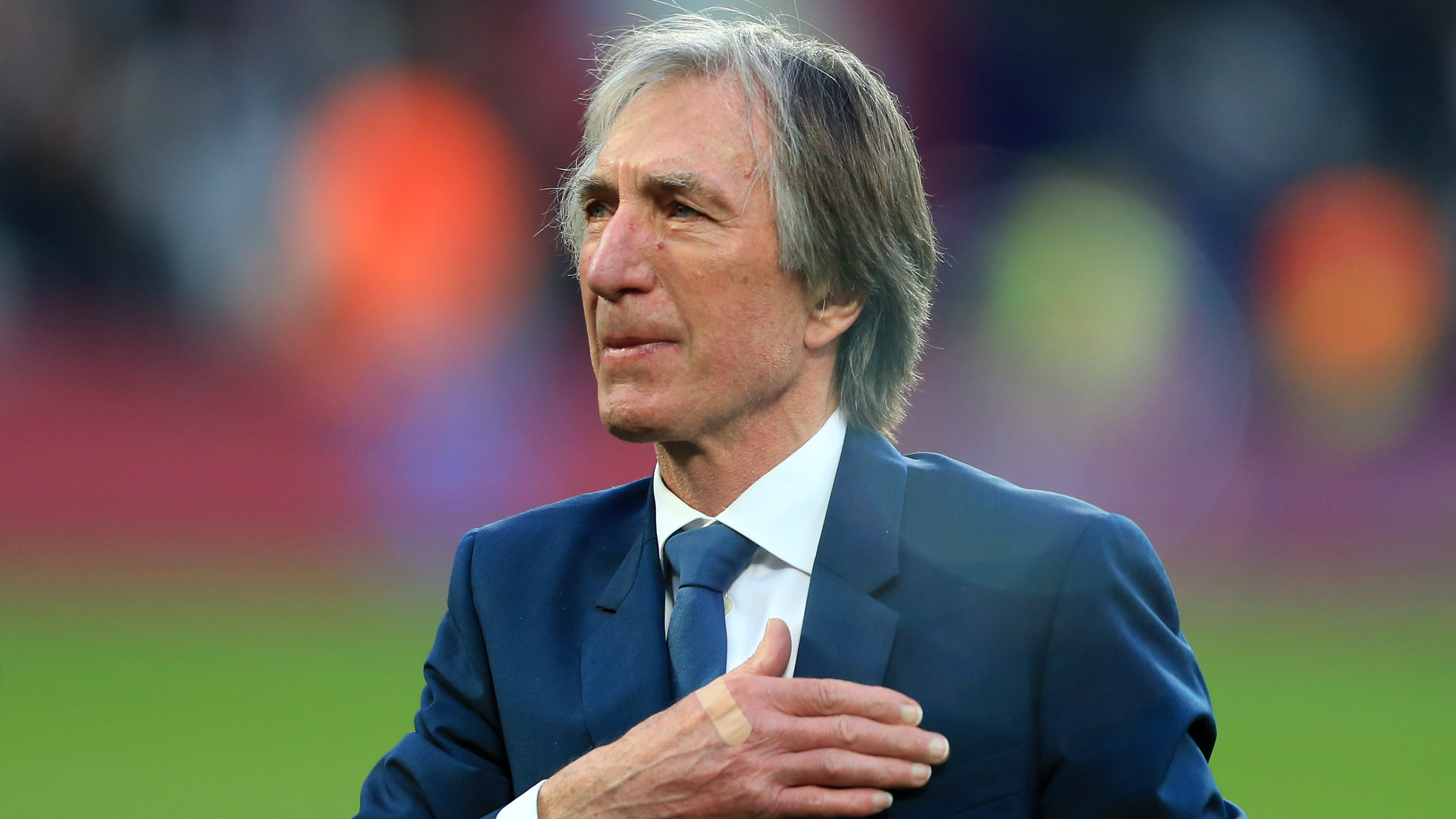Continuing our series commemorating the 40th-anniversary of the Hammers' highest-ever, top-flight finish, former West Ham United midfielder Alan Dickens recalls the Club’s remarkable, record-breaking 1985/86 season…
It was a sliding doors moment.
A twist of fate that altered the outcome of an entire campaign
Merely a quarter-hour into 1985/86, the whole trajectory of the Hammers' season dramatically changed course, when striker Paul Goddard devastatingly dislocated his shoulder in our opening day defeat at Birmingham City (0-1).
With mercurial midfielder Alan Dickens stepping from the bench at St Andrew’s, Frank McAvennie hastily moved forward into the position vacated by the sidelined ‘Sarge’, who was now destined to be laid-up until New Year.
Meanwhile, missing only one more game all term, ‘Dicko’ would go on to start 50 matches, while marksman McAvennie – a £340,000 summer-signing from St Mirren – would revel in his newly-found attacking role, sensationally firing home 28 goals to help secure a record-breaking third-place finish for West Ham United.
“Pre-season had already been difficult for everyone,” explains Dicko. “From a personal perspective, I’d missed our trip to Japan with a broken foot and things had become tricky for the team, too.
“Paul Allen – our best player throughout 1984/85 – had left for Tottenham Hotspur, and we also suffered a couple of bad results in our friendlies against Wimbledon (2-4) and Orient (1-3) before the new season started.
“At Brisbane Road, a fan got past security and came into our dressing room telling us some home truths. Nobody wanted to hear them but, to be fair, he was probably right!
“Then, Sarge got his nasty injury at St Andrew's Stadium.
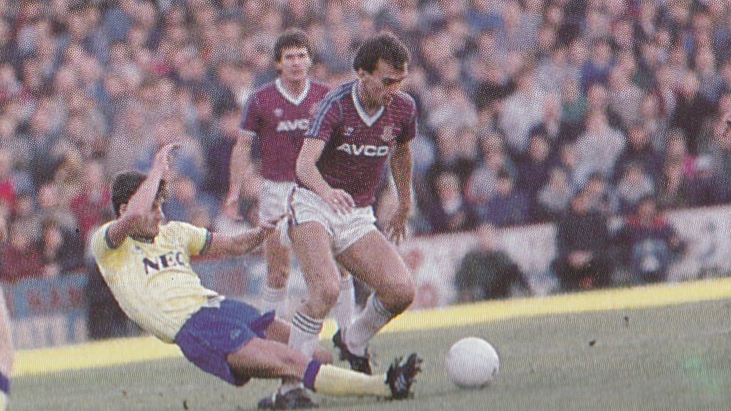
“I came on and hit the post – perhaps I should’ve scored? – and, although we ended up losing that first game, we knew we’d chances to put things right in our next game, against Queens Park Rangers.
“John Lyall told me on Monday morning that I’d be starting at Upton Park the following evening, which was just what I needed for my confidence. I was one of those players who always wanted the manager’s reassurance.
“Coming through the Academy of Football as a schoolboy, I’d been unfazed by things, but as I got further into my career, I must’ve got on John’s nerves at times for over-thinking things. That was just how I was!”
Certainly, Alan repaid Lyall’s faith during a welcome win over QPR, while two-goal McAvennie and another new-boy, Mark Ward – a £225,000 capture from Oldham Athletic – also enjoyed memorable home debuts.
“Frank and Wardie made a big difference,” contends Dicko, who made 234 appearances during his seven seasons in Claret and Blue. “We quickly saw that they both had a real will to win. It was similar when David Moyes signed Tomáš Souček and Vladimír Coufal, who arrived from the Czech Republic and brought consistency and a work-ethic into the team. That’s exactly what Frank and Wardie did all those years ago and the crowd loved them, too.”
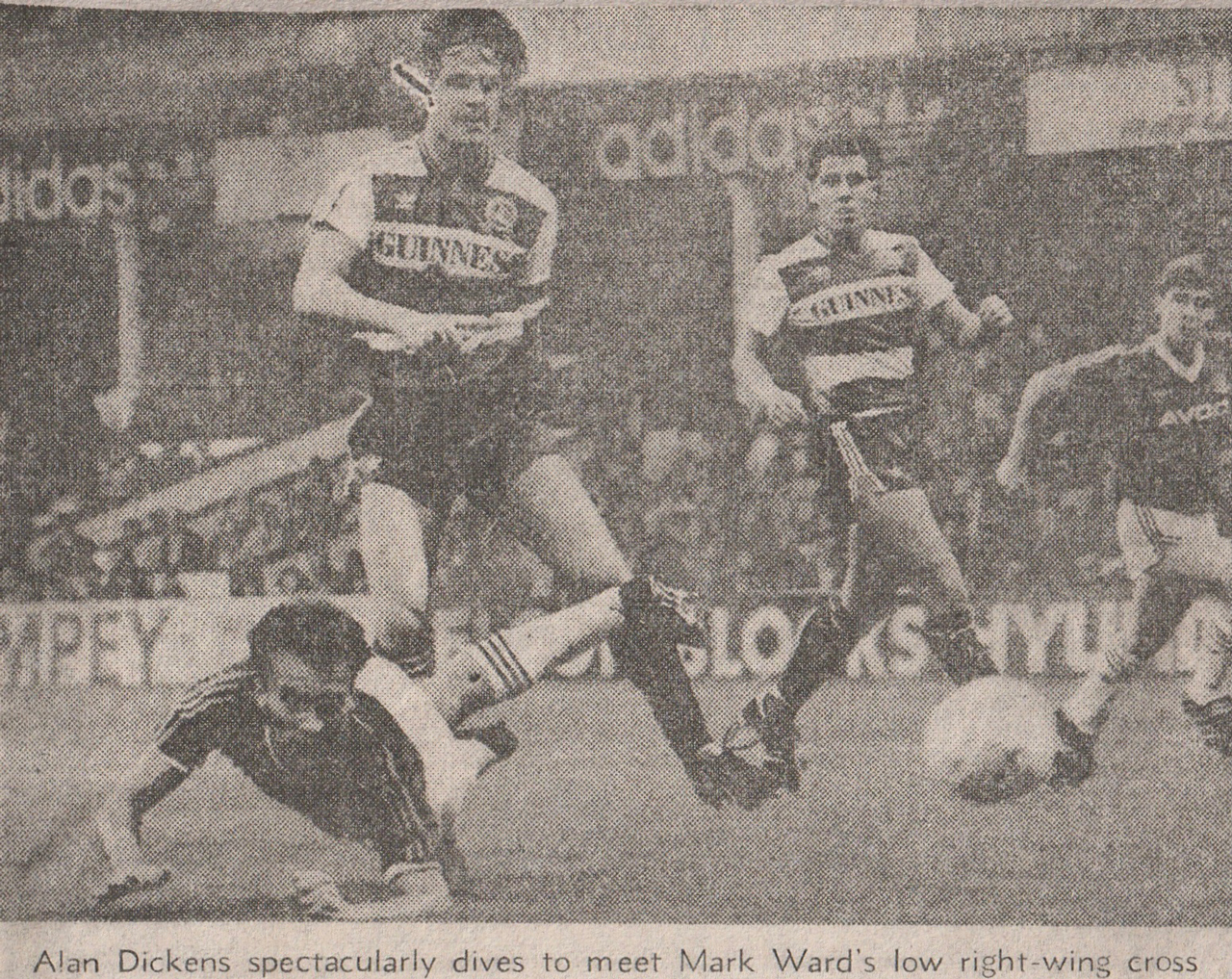
After McAvennie quickly got off the mark on his Boleyn Ground bow, Alan doubled the lead with a brave diving header before then inviting the Scottish new boy to break upfield and cement a 3-1 victory.
“I got down there amongst all the boots and the studs,” smiles the 61-year-old, recalling the first of four goals he scored during those 50 outings of 1985/86.
West Ham had put three points on the board, but that would be their only victory across the first seven matches of what seemed set to be a season of struggle.
While McAvennie then struck another double against Liverpool (2-2), strike-partner Tony Cottee was still firing blanks, going into September.
With Goddard sidelined, Lyall recalled rookie forward Greg Campbell for the midweek trip to Southampton (1-1), as a crestfallen Cottee was benched at The Dell.
“I’d grown up in the Academy with Tony, who definitely knew how to score goals,” reveals the 1981 FA Youth Cup winner. “But we weren’t clicking as a team and the senior players felt that some people needed to work harder. Alvin Martin and Tony Gale called a squad-meeting and told everyone that we were all in it together.
“TC got a bit of a nudge and, looking back, he’d probably admit that he needed it? Maybe only being named as substitute at Southampton was the motivation he needed to then have such a great season? Tony got himself going again and showed everyone what he was about.”
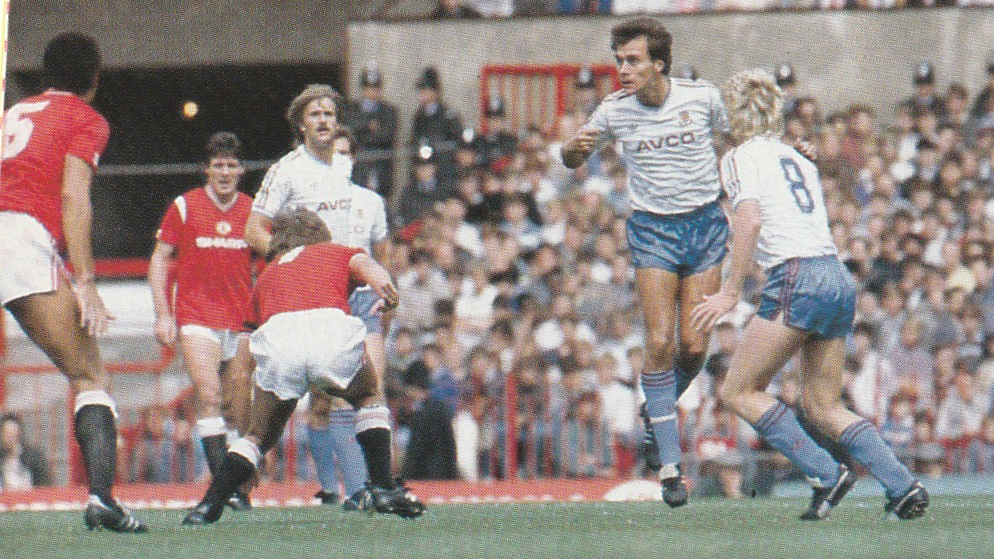
Indeed, restored to the starting XI for the subsequent trip to Sheffield Wednesday (2-2), Cottee finally got off the mark at Hillsborough ahead of scoring eight goals in eight matches.
After his spluttering start, the rejuvenated striker began firing on all cylinders, eventually scoring 26 times, while the in-form Hammers embarked upon a record-breaking, unbeaten top-flight run of 18 games that extended through until Boxing Day.
“Growing up as a fan, I’d always considered us to be a top team,” contends the once-capped England U21 international. “Even today, I watch The Big Match Revisited and, for me, West Ham played the best football out of everyone in the 1970s and 1980s. There was no reason why the Club couldn’t compete for those higher places, but we just couldn’t find the consistency needed over 42 matches.
“But in 1985/86 something changed and, as games rolled-on, it was obvious that Frank and Wardie had brought something into the team that, Billy Bonds aside, we hadn’t had before.
“West Ham had always been too nice. Coming through the Academy, we had to tuck our shirts in, pull-up our socks and behave in the ‘West Ham Way’. Obviously, there’s nothing wrong with having discipline and those traits but you need a ‘nasty’ streak, too.
“Until then, we hadn’t been renowned for that but Frank and Wardie could be ‘horrible’ opponents – not in a malicious or spiteful way but they’d certainly leave defenders knowing they’d been in a game.
“Liverpool and Everton had Steve McMahon and Peter Reid-type characters and, suddenly, we’d two players bringing steel into our team. Everyone started realising it wasn’t just about playing lovely football. Teams like, say, Wimbledon, never seemed worried about that. Now, we were all working really hard for each other and I’d added a bit more aggression into my game, too.”
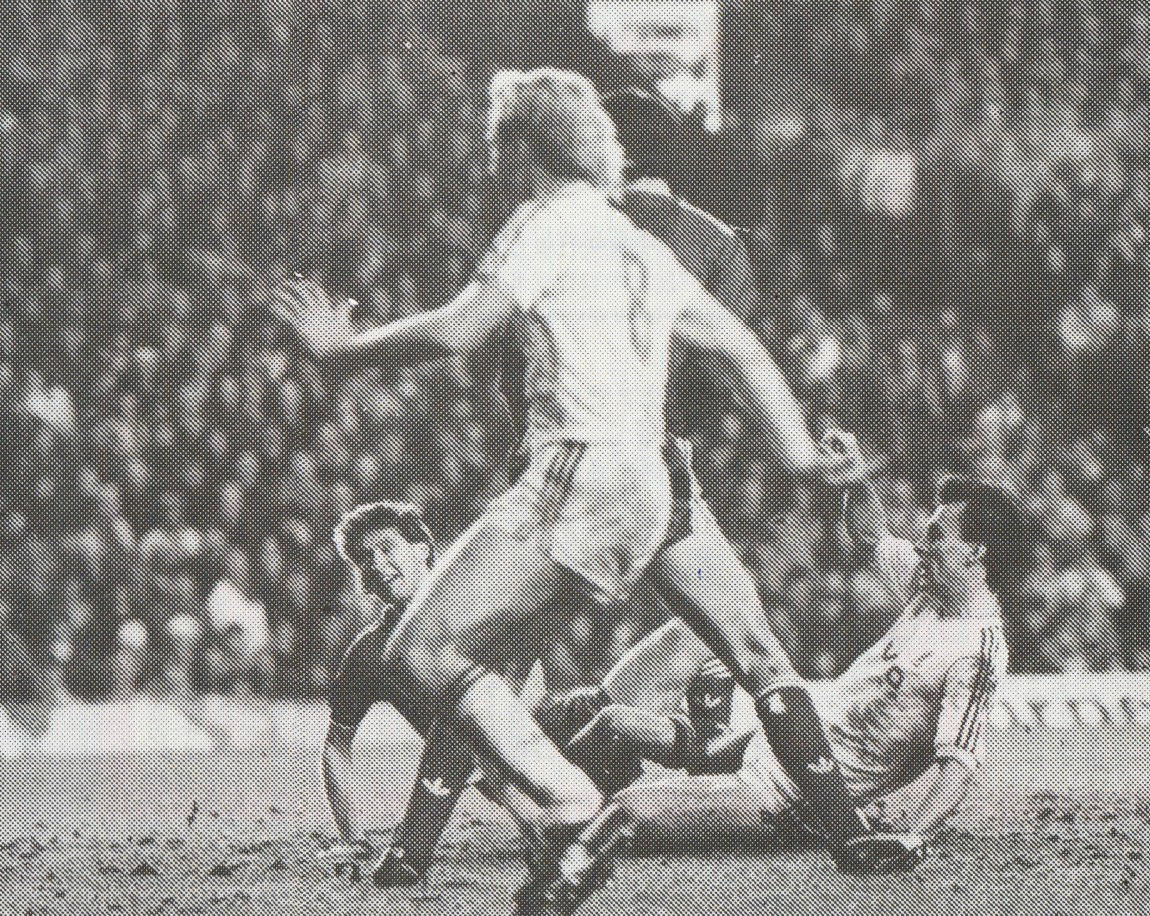
With Lyall’s lads also stringing a top-flight record, nine-match winning run together, in a season that had begun with no great expectations, Dickens now found himself helping to re-write Hammers history.
“Out wide to Wardie and Alan Devonshire or forward to Frank and Tony, I knew where the ball had to go and felt I was making a good contribution. It was the only period in my entire career when I’d ever walk off after games thinking: ‘I’ve got chances of playing next Saturday.’
“Before that, and afterwards, I’d always found it difficult, spending the week worrying: ‘Am I going to play?’
“It was also the first time I went into every game thinking: ‘We’ll win today.’ In January, we went up to Anfield and I walked down the tunnel thinking: ‘We’re just as good as Liverpool.’ That didn’t happen too often in your career!
“With only a couple of places between us in the table, we played well,” argues Dicko, who scored a late consolation in what eventually proved to be a 1-3 defeat against the eventual champions. “It was goalless for an hour but then they got a dubious penalty and we had Ray Stewart sent-off, too.”
A harsh winter wipe-out, plus an extended run to the FA Cup quarter-finals, resulted in West Ham playing catch-up with their final 13 fixtures coming inside 38 frantic days.
Keeping up pressure on leaders Liverpool – with just three to play – Lyall’s leggy lads beat Ipswich Town in their last home encounter of a sensational season.
“I wasn’t one to constantly look at league tables, I just knew we were up there after winning three games at Upton Park on the spin,” continues Dicko, whose brilliant chip wiped out Kevin Wilson’s opener before a late, trademark Stewart penalty kept title hopes alive with a tense 2-1 victory over the Tractor Boys. “What a great night. Even when we looked like losing, we found a way to win.”

Although the heartbroken Hammers – in second-spot – then notched a sixth-straight victory at West Bromwich Albion (3-2) in their penultimate match of the campaign, Liverpool’s victory at Chelsea secured the title for the Merseysiders.
Defeat at Everton (1-3) two days later would also see the Toffees snatch runners-up spot from under the noses of West Ham, who still achieved that best-ever, third-place finish.
“Liverpool always had the slight edge over Everton and ourselves,” concedes Dicko. “After doing really well at The Hawthorns, we were flat going up to Goodison Park and it was only during the summer that it dawned upon me we’d just needed a draw to play Liverpool in the FA Charity Shield. That would’ve been an opportunity to play for West Ham at Wembley. It’s one of my biggest regrets in football.”
Dickens would later join Chelsea ahead of making 15 loan appearances for Brentford during 1992/93 before concluding his playing career in non-league.
Now a licensed Black Cab driver, Dickens returns regularly to London Stadium in his role as a matchday Ambassador.
No doubt as he walks the hospitality lounges – four decades on – the Boy of '86 is often reminded of the pivotal part he played in our own fairytale, third-place finish.
“We were all in it together back in 1985/86, with two lads who could score goals, wide men who got forward and a midfield that worked really hard. Add-in an experienced defence with Phil Parkes in goal and, yes, it all made for a truly great team.”
